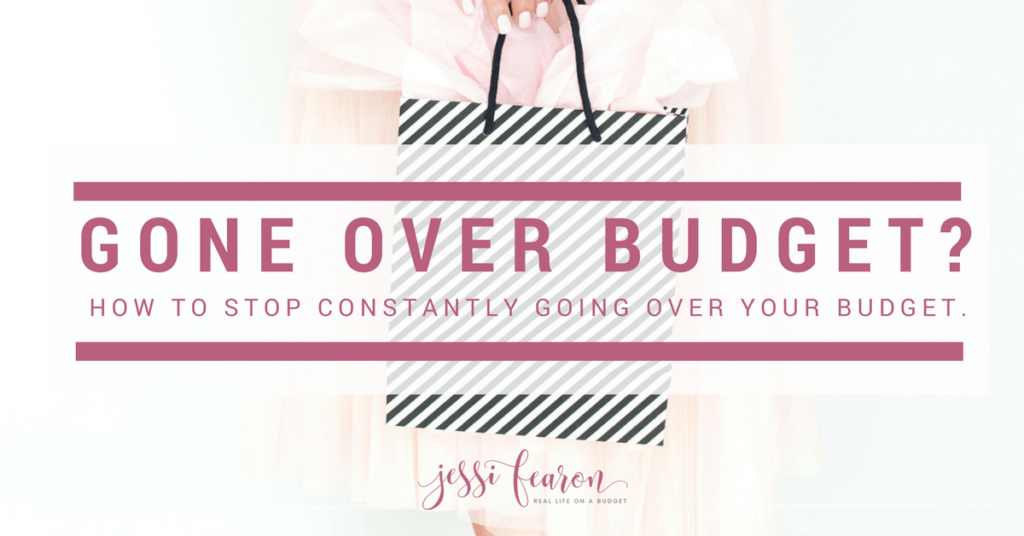
Confused on how to make a budget work for you and your family? I’ve been there – I know what it’s like to create a budget, and have all these incredible ideas on how you’re going to make the budget work but then you find yourself out of money and more bills coming in. I feel you. I’ve dealt firsthand with this budget killer before and through a little bit of legwork, you can defeat it too!
I wish I could tell you that just setting up a budget would be enough, but it won’t. You can’t just “set it and forget it” with a budget. You have to be willing to work the budget. Meaning you have to be willing to stick to it, but you also have to be realistic.
The biggest budget killer
Believe it or not, the biggest budget killer isn’t the failure of sticking to the budget. It’s a failure in understanding what you should be budgeting for. I’m all about living a real life on a budget because I know from first-hand experience that if you don’t account for your real life in your budget, then your budget will fail every.single.time.
Yep. If you want to make this whole budgeting thing work then you’re going to have to determine what needs to be included in your budget and what should be left out (permanently or temporarily). In my money management course, I teach students about the process of prioritizing expenses in depth so I’m not going to go crazy deep with it here, but I will tell you that you decide what is most important to you.
For example, what are your big goals? Are you wanting to pay off debt so you can keep more of the money you earn instead of forking it over every month in the form of payments? Are you wanting to save money for a down payment on a house? Expecting a baby and want to make sure you have the expenses on hand to cover the birth?
What are the big goals that you have for your life right now? Now, the question is what expenses matter and which ones don’t? If you’re trying to pay off debt so you can keep more of your income, then maybe cutting eating out to eat from your budget for a few months will provide that much needed additional payment towards those debts.
Why it’s a big deal
If you’ve been trying to budget according to someone else’s budgeting template or recommended percentages but haven’t been taking into account your actual life, then your budget is going to be a complete mess! It took us years to understand this. I would get so frustrated that our budget wasn’t working that my husband was overspending and that the utility bill was higher than I expected, but the reality was those things could have been accounted for. I just didn’t know how to account for them (I totally get the irony here as I have an accounting degree…).
So here’s what you’re going to do – you’re going to do a spending review. I go into depth on conducting a complete annual spending review here (and I highly recommend that you do that) but for now, we’re just going to go through the last 90 days so we can get you a budget that actually works.
How it works
So log on to your online bank account and download your checking account bank statements from the last 90 days. If you use credit cards or other checking accounts, you’re going to need to do the same thing for all of them. Gather up all of these statements, a calculator, and if you have different colored highlighters/color pencils/markers/etc. get those. Then, you’re going to go line-by-line and highlight all grocery related expenses in one color, all fuel purchases in another, all subscriptions in another, and so on. Make sure you highlight the stuff that you don’t remember a specific color too.
Now you’re just going tally up all the categories! How did you do? Don’t fret if you’re shocked by how much money you’ve spent without realizing it – my family has totally spent over $1,200 on groceries in one month back when we were only a family of 3! Now we only spent $400-$500 a month as a family of five. You can’t make any changes if you aren’t aware of the issues and that is the point of this exercise.
You now know what money struggles you have and you can address them accordingly and figure out possible solutions for them.
Is it important?
So now that you have all your categories and totals from the last three months right in front of you, ask yourself, “what of these expenses is actually important to us and which are not important?” Did you know that the word priority was a singular word until the 1900s? It did become “priorities” until after the industrial revolution when we sped up our lives because the word prior means to come before and there can only be one thing that can come before all others.
So, what’s your priority in your budget? I mean, yes, paying for your mortgage or rent is totally a priority and keeping the lights on is important too. But assuming that all those can be paid for from your family’s income and there’s money left over, what after those expenses is a priority? It’s all about setting up self-discipline and that gets so much easier when we know what the most important things are.
For example, I have friends that pay for private school and for them it’s a priority. They cut back and cut out a lot of things in their budget to be able to pay for private school for their children. Another family friend, their priority is buying organic food – they don’t go to eat because buying organic food is more important to them than paying for a meal out. One of my coaching clients from long ago actually sold off their big home in order to help fund their kids’ college funds because sending their kids to college debt-free was more important than living in a large home.
Next steps
From here, once you’ve decided what is and what is not important to you, it gets easier to make decisions on what should be included in your budget. This is really all a budget is – a plan for your money based on your life. If your budget doesn’t take into account your real life then it will fail 100% of the time. So once you’ve armed yourself with this information of what expenses are important to you and which ones aren’t, start building your budget around those expenses.
Resources to help with building a budget:
Personal Capital (free online budget software program)
Our Funds Budgeting System Explained
Okay, so now you tell me – if you’ve conducted a spending review, what was your most surprising find?
OTHER POSTS YOU MAY ENJOY
The post The Biggest Budget Killer appeared first on Jessi Fearon.


